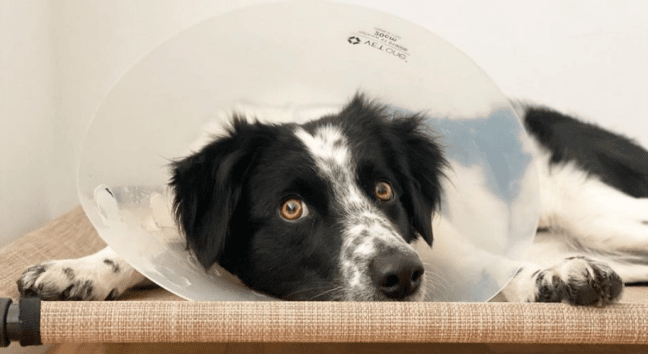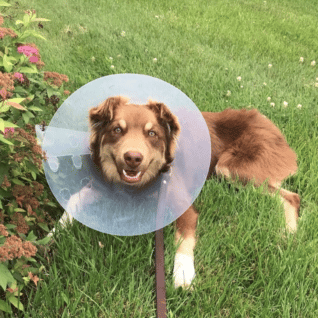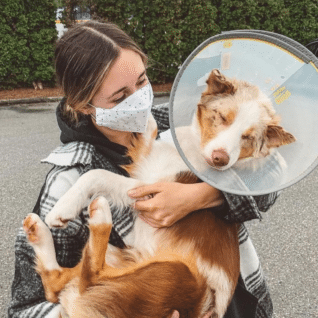What is spaying and neutering? A spay is the surgical removal of a female dog’s reproductive organs (including the ovaries and uterus), and a neuter is the surgical removal of a male dog’s testicles. “Fixed” or “altered” are some other terms that mean spay or neuter. Both procedures are performed by a licensed veterinarian while your pet is under general anesthesia. Spaying and neutering not only prevents unwanted animal pregnancies and overpopulation, but it has many other benefits. Let’s talk about the importance of spaying or neutering your dog.

@kitch_city
As Told by a Vet: Top 4 Reasons to Spay or Neuter your Dog
@kitch_city

@activatedcowgirl
Reduces the Chance of Reproductive Cancer or Infection
The average lifespan of a spayed or neutered dog is statistically shown to be longer than the lifespan of dogs that are not. A large reason for this is the reduced risk of certain types of cancers. Dogs can get ovarian cancer, uterine cancer, and testicular cancer. By removing their reproductive organs, you eliminate their chance of these types of cancers and significantly reduce the chance of mammary or prostate cancer. In female dogs, an infection of the uterus (called a pyometra) is a potentially deadly infection that occurs in roughly 1 in 4 non-spayed dogs. This type of infection can occur in a dog of any age. These health benefits are one of the biggest reasons I recommend spaying and neutering every dog.
Improvement of Temperament and Behavior
Intact (or non-spayed/neutered) dogs may act differently than spayed/neutered dogs. Dogs that are spayed or neutered are generally easier to train and more focused on their family. Intact dogs also have the urge to roam in search of a mate, which increases the chance of your dog escaping or getting lost. Spaying and neutering also reduces your dog‘s desire to “mark their territory”, mount other dogs or objects, and some aggressive behaviors may be avoided. Many intact dogs get into fights with other dogs, or may even sustain deadly injuries while roaming the streets. The longer you wait, the greater risk of spaying or neutering not reducing these unwanted behaviors because the animal’s behavior will become a habit. Even though having your dog spayed/neutered will help curb undesirable behaviors, it will not change their personality.

@miniaussiejoey

@gemmagoldendoodle
Reduced Long-term Costs for the Care of your dog
Spaying or neutering your dog is a minimal cost compared to the potential long-term medical costs incurred for an unaltered pet. Many dogs are even spayed/neutered included with the adoption fee of a dog from a shelter or rescue organization. Caring for a dog with reproductive cancer or uterine infection can cost 5-10 times greater than the actual cost of the spay or neuter surgery. In cases where intact dogs fight or get hurt while roaming, treatment of their injuries can also result in high medical costs.
I know you may be thinking “how much does it cost to get my dog spayed or neutered?” There are a lot of great clinics out there that can help offset the costs. In terms, of WHEN you should spay your dog… I recommend speaking to your local veterinarian as they will have the best idea when it’s appropriate – especially if you rescued a dog and you’re not sure how old they are. Luckily, the aftercare of a dog after they’ve been spayed or neutered is quite simple. You’ll either be provided a cone or you can buy a soft neck pillow (this one is a donut pattern) to protect your dog from licking the area…
Share in the comments below if there was a cone you found beneficial for your dog?




Conversation